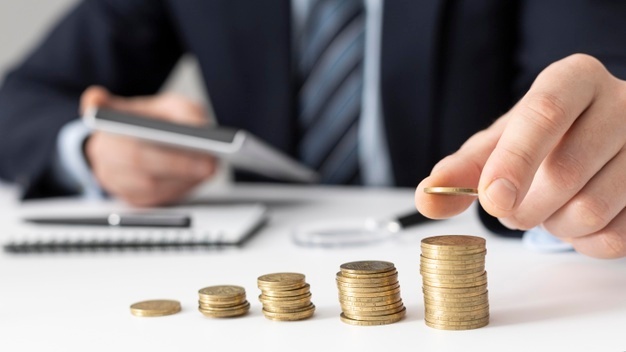Learning from others in national control of inflation
 |
| illustration photo, source: freepik.com |
By Bui Nguyen Khoa-Deputy manager of Research BIDV Securities
In the last months of 2021, most localities have already relaxed social distancing rules and reopened the economy. However, prices of numerous products like petrol, coal, and logistics are soaring significantly, slightly affecting inflation last month and likely over the next few months.
Specifically, the consumer price index (CPI) last month decreased by 2 per cent on-month, raised by 1.67 per cent compared to last December, and by 1.77 per cent on-year, according to the General Statistics Office. Generally in the first 10 months of 2021, CPI rose by 1.81 per cent on-year, which is the lowest raise since 2016, while basic inflation increased by 0.84 per cent on-year. Based on the current prices, the CPI of the whole year will be stable at 2 per cent, lower than the goal that the National Assembly set forth.
In fact, since early 2021, the petrol price around the world has risen by 59-76 per cent, while it has risen by 40-52 per cent in Vietnam thanks to the stabilisation fund. Besides this, the huge increase in logistics costs and metal prices worldwide due to the interruption of supply chains during this year has increased the cost of production.
However, the drop in pork and electricity price, along with weak demand, has pulled the CPI down over the last months. There have been five times that the Ministry of Industry and Trade cut down the electricity price to support people and enterprises during 2020 and 2021, at a total amount of $724 million. Meanwhile, the price of live hogs and chicken on the market has been falling by around 30-50 per cent since July.
In the World Economic Outlook last month, the International Monetary Fund (IMF) warned of the need to be ‘very, very vigilant’ over rising inflation risks. The global economy has entered a phase of inflationary risk, and early action must be taken to tighten monetary policy should price pressures prove persistent.
The IMF’s central forecast is that inflation will rise sharply towards the end of the year, become moderate in mid-2022 due to the supply-demand mismatch, and then fall back to pre-pandemic levels. But the report also notes that ‘inflation risks are skewed to the upside’, and emerging economies and low-income countries would be hit much harder in the long term.
Agreeing with the IMF’s report, however, I also see some delay in Vietnam compared to the trend of the world. Specifically, while most countries were struggling with the coronavirus outbreaks in 2020 and the first quarter of 2021, at the time Vietnam reported growth much brighter than others.
However, since the second and third quarters of this year, while other countries were recovering, the Delta variant hit Vietnam. The country is now considering how to develop a huge bailout to stimulate people’s needs.
Therefore, I hope that inflation will arrive in Vietnam later, and we can see the lessons learnt from other countries. Moreover, the World Bank forecasted that energy prices will start to fall in the second half of 2022 with the relaxing supply chain troubles, and the decrease of the prices of non-energy commodities such as agricultural products and metals expected to drop after strong growth in 2021.
In addition to these major factors directly impacting the CPI, other factors are good enough to manage inflation. In the first 10 months of 2021, the exchange rate of VND/USD is currently on a downward trend, despite VND depreciating at about 2 per cent against USD last year. The internal strength of Vietnamese businesses is stronger, and easier to adapt and recover.
After 2-3 months of the pandemic outbreaks, two-way trade turnover of the country in October reached $55 billion, a rise of 2.4 per cent on-month, including $28.87 billion of export value, up 6.8 per cent on-month, and the trade surplus was $2.74 billion. Foreign investment inflows remained good in spite of the pandemic and are expected to strongly recover as the aviation industry returns.
Acknowledging the troubles and advantages, the government has been carefully considering a bailout to recover the economy to both ensure stimulated consumption and avoid inflation. Delivering some cash to support people over these two years may not raise inflation because the amount is too small. However, the likely upcoming bailout should utilise fiscal and monetary policies instead of directly pumping cash into the market, and needs measures to lure money at the same time.
In general, inflation will be a variable that needs to be observed as it governs the decisions of monetary and fiscal policies in Vietnam. But with learning lessons from the past and from other countries, the economy has opportunities to recover production, recover strong growth, and lure more FDI, with inflation under control.
What the stars mean:
★ Poor ★ ★ Promising ★★★ Good ★★★★ Very good ★★★★★ Exceptional
Related Contents
Latest News
More News
- Vietnam’s pivotal year for advancing sustainability (February 19, 2026 | 08:44)
- Strengthening the core role of industry and trade (February 19, 2026 | 08:35)
- Future orientations for healthcare improvements (February 19, 2026 | 08:29)
- A cultural development pillar for the new period (February 19, 2026 | 08:22)
- Infrastructure orientations suitable for a new chapter (February 19, 2026 | 08:15)
- Innovation breakthroughs that can elevate the nation (February 19, 2026 | 08:08)
- AI leading to shift in banking roles (February 18, 2026 | 19:54)
- IFC to grant $150 million loan package for VPBank (February 13, 2026 | 09:00)
- SABECO celebrates diverse Tet Traditions (February 11, 2026 | 08:00)
- Canada backs Vietnam’s green transition with AGILE project (February 09, 2026 | 17:41)

 Tag:
Tag:
















 Mobile Version
Mobile Version